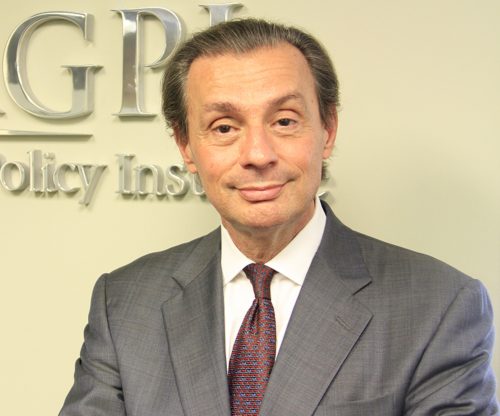Issue Briefs
America Needs Talented Immigrants
By Paolo von Schirach
September 12, 2024 – It is a well-known cliché to affirm that America is “a country of immigrants.” That said, it is surprising that nowadays it is incredibly difficult, even for very talented foreign individuals, to become legal immigrants to the United States, and therefore be hired by tech companies or start their own.
Let us look at the almost mythical past. Here are just a few immigrants who benefited America while building incredible careers for themselves. Andrew Grove, legendary Intel CEO; Igor Sikorsky, aviation pioneer who created helicopters; Andrew Carnegie, fabulously wealthy creator of U.S. Steel and later on major philanthropist; Elon Musk, super-rich founder of Tesla, the electric vehicles company; Albert Einstein, a true genius; Satya Nadella, Microsoft CEO, Edward Teller, eminent physicist who contributed to the Manhattan Project; Henry Kissinger, Harvard University Professor and then National Security Adviser and Secretary of State. All of them were allowed to become immigrants into the United States. In America they found the fertile soil to study, build and expand, to found companies, to become teachers at famous universities, or rise to lead famous companies created by others.
And this is only a small part of the long history of immigration to America. Below the super successful and ultra famous there are millions and millions who came, year after year, as poor immigrants, and then managed to do well. Thanks to their own efforts or the efforts of their families, they got an education. They became bank managers, physicians, lawyers, small business owners, teachers, military officers, judges, you name it.
As it is indeed impossible to think of today’s America without the critical contributions of millions of immigrants, super talented or just hard-working people, it is shocking to see how current U.S. immigration laws make it extremely hard for talented immigrants to gain work permits and eventually resident status.
It is well known that many prestigious U.S. research universities like MIT or Caltech work hard to attract talented foreign students who want to pursue doctorates in electrical engineering, computer science, physics, and what not. They do come and many of them successfully complete their studies. Upon graduation, many if not most of them would like to work in the U.S. Given their excellent qualifications, it should not be a problem to be hired.
Except that complicated and highly restrictive immigration laws stand in the way. Coveted permits for talented professionals –known as H-1B temporary work visas– are scarce and are allocated according to bizarre quota systems. Changing work visas into permanent residence status –generally known as “green card” status—is another hurdle. While many skilled foreigners try to become legal immigrants, a large segment of applicants get discouraged and give up. They often end up as immigrants into Canada or Australia. Not their first choice in terms of career opportunities, but much more immigrant-friendly countries.
But why all this red tape in the U.S., considering the proven value of immigrants to America? In part this is due to the fact that immigration has now become a highly politicized and divisive topic. When Donald Trump was President, he embraced nativist and xenophobic views. His goal was to stop any type of legal immigration, not just the illegal border crossings from Mexico. And today America still lacks the broad political agreement necessary to have comprehensive immigration reform.
Therefore, it is all frozen. The old, inefficient and counterproductive system remains. So, here is the glaring contradiction. The great U.S. universities encourage talented foreign students from India, China or South Korea to come. In practice, upon completion of their studies, many if not most of them are forced to leave because of the absurd restrictions on applications for legal immigration.
And this is an enormous, and totally self-inflicted wound, a veritable tragedy for America. All economists would agree that the most valuable asset that nations have in this global knowledge economy is sophisticated “human capital,” talented individuals. Other countries do their best to attract them. America educates them and then drives them away.
 |
Paolo von Schirach is the President of the Global Policy Institute, a Washington DC think tank, and Professor of Political Science and International Relations at Bay Atlantic University, also in Washington, DC. He is also the Editor of the Schirach Report. |